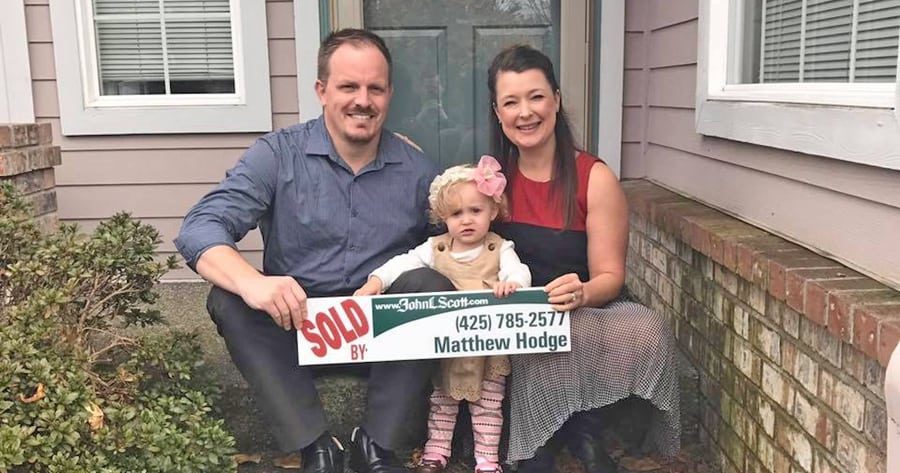
Home » Tax advisers field unusual questions to help clients maximize deductions
Tax advisers field unusual questions to help clients maximize deductions

January 13, 2017
For many Americans, tax season comes with spring.
But for Ty Schatz, a certified public accountant with Michels & Schilperoot PS Inc. in Sunnyside, the season kicks off in mid-November.
“Clients want to know where they stand tax-wise and what could be done prior to year-end to reduce their tax bill,” he said.
Saving clients money is the ultimate goal, and Schatz has spent 12 years helping people maximize their tax deductions. The tough part, he said, is making customers realize that everyone’s situation is unique, and that a yes on a deductible for one person may not mean a deductible for another.
“So if a friend tells you about a great deduction that they got, don’t run out and make the same purchase thinking you’ll get the same,” Schatz said.
Financial experts’ main message this tax season? Talk to a professional to figure out what works best for you.
Odd deductible requests
CPAs field all kind of unusual questions about deductible items this time of year.
“However, more likely than not, someone has tried to deduct it in the past. As a tax preparer, it’s important for us to not immediately discount the question,” Schatz said.
He said he will check to see if there’s a precedence to allow a specific deduction. For instance, in the case of personal trainers who also compete in bodybuilding competitions, he recalled a tax ruling allowing for the deduction of the cost of baby oil.
He’s heard questions about body enhancements and elective cosmetic surgeries, which generally aren’t deductible.
“A client that is self-employed does their best thinking and writing when on a treadmill and has asked if it could be deducted,” he said, adding that over the years he’s also been asked if funerals and weddings qualify as a business expense.
Jennifer Mitchell, who has owned and operated Account Sense in Kennewick for more than a decade, said she’s had some interesting questions on deductibles over the years, too.
“A lot of people have fur babies, and so they spend a lot of money on their animals. So I do get that question asked a lot, ‘Can I deduct my cat?’” she said. “Or people want to deduct all their food because they have to eat all gluten-free. But it’s not deductible.”
There are items that can be deducted for medical purposes, however. A breast pump, for instance, can be a write-off. And in one case, a client was able to deduct a hot tub.
“The client had a doctor’s note, and it was medically necessary,” Mitchell said. “I had to find out that it was going to be legitimately allowed, and the doctor said it was going to help the condition he had. So there are some times when you get to take advantage of those quirky laws.”
Ryan Sullivan, a certified financial planner at Pacific Crest Planning in Kennewick, specializes in retirement savings, benefits and pension plans. Though he doesn’t field the same questions as Mitchell and Schatz, he stressed the importance for people to utilize their retirement plans for not only their future but for tax purposes.
“Generally speaking, you can take a tax deduction for retirement plans. Every business is unique. If you’re relying on selling your business and Social Security (for future income), you have a two-legged stool. But if you’re prepared, you’re more diversified.”
Sullivan added that all too often people don’t keep track of their charitable contributions accurately.
“You can Google donation valuation guides. Goodwill has one, the IRS publishes one,” he said. “A pair of jeans can be anywhere from $5 to $20, but a lot of people put $1.
“A lot of people take their stuff to Goodwill, and they think that $5,000 is the limit, and they’ll donate a truckload and only deduct $500,” Mitchell said. “People don’t want to push the limit (with the IRS). But if you’re in the 25 percent bracket and donate $1,000, that’s $250 you just saved, and that could buy you an accountant, and an accountant can find you other things you might be missing.”
Schatz said some common items that may get missed come tax time are medical miles driven, charitable miles driven, gambling losses and moving expenses, including the cost of moving pets.
Mitchell added that many business owners don’t realize they can write off cellphone and mileage expenses, as well as business furniture. Even part of the electricity bill for a home office can be deducted.
“A lot of people are afraid to ask because back in the 1980s, it was a red flag for an audit, but that’s not true anymore,” she said. “It’s about getting a good accountant and having someone on your team to ask before you buy and when to buy. Don’t be afraid to ask.”
Local News Legal
KEYWORDS january 2017





